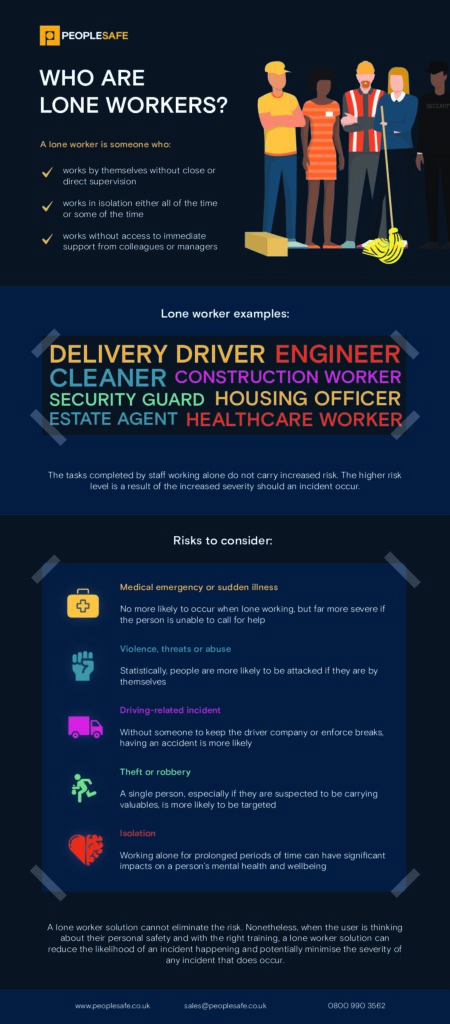Who Are Lone Workers?
A lone worker is someone who:
- works by themselves without close or direct supervision
- works in isolation either all of the time or some of the time
- works without access to immediate support from colleagues or managers
Lone worker examples:
- Delivery driver
- Engineer
- Cleaner
- Construction worker
- Security guard
- Housing officer
- Estate agent
- Healthcare worker
The tasks completed by staff working alone do not carry increased risk. The higher risk level is a result of the increased severity should an incident occur.
Risks to consider:
- Medical emergency or sudden illness: No more likely to occur when lone working, but far more severe if the person is unable to call for help
- Violence, threats or abuse: Statistically, people are more likely to be attacked if they are by themselves
- Driving-related incident: Without someone to keep the driver company or enforce breaks, having an accident is more likely
- Theft or robbery: A single person, especially if they are suspected to be carrying valuables, is more likely to be targeted
- Isolation: Working alone for prolonged periods of time can have significant impacts on a person’s mental health and wellbeing
A lone worker solution cannot eliminate the risk. Nonetheless, when the user is thinking about their personal safety and with the right training, a lone worker solution can reduce the likelihood of an incident happening and potentially minimise the severity of any incident that does occur.

